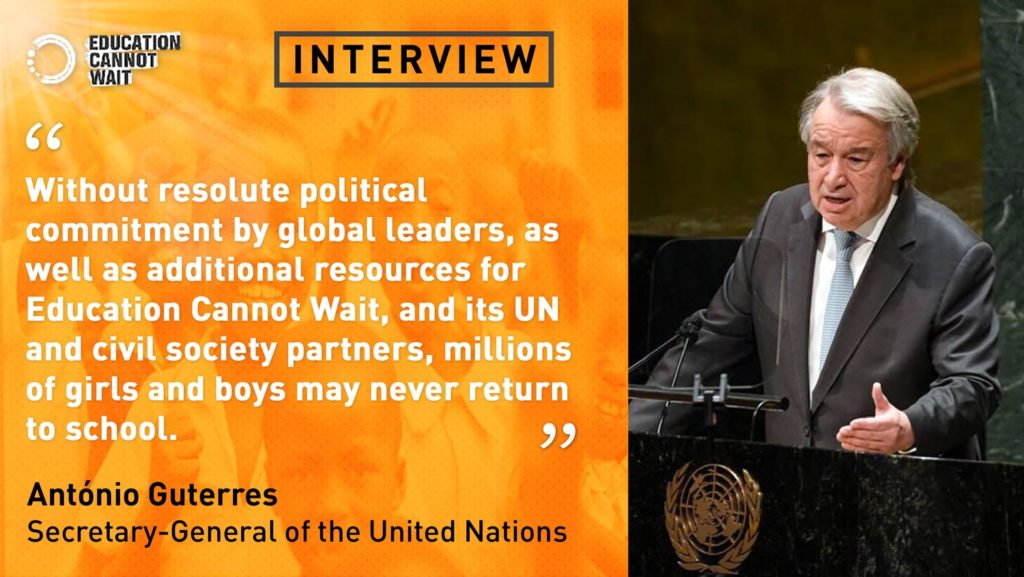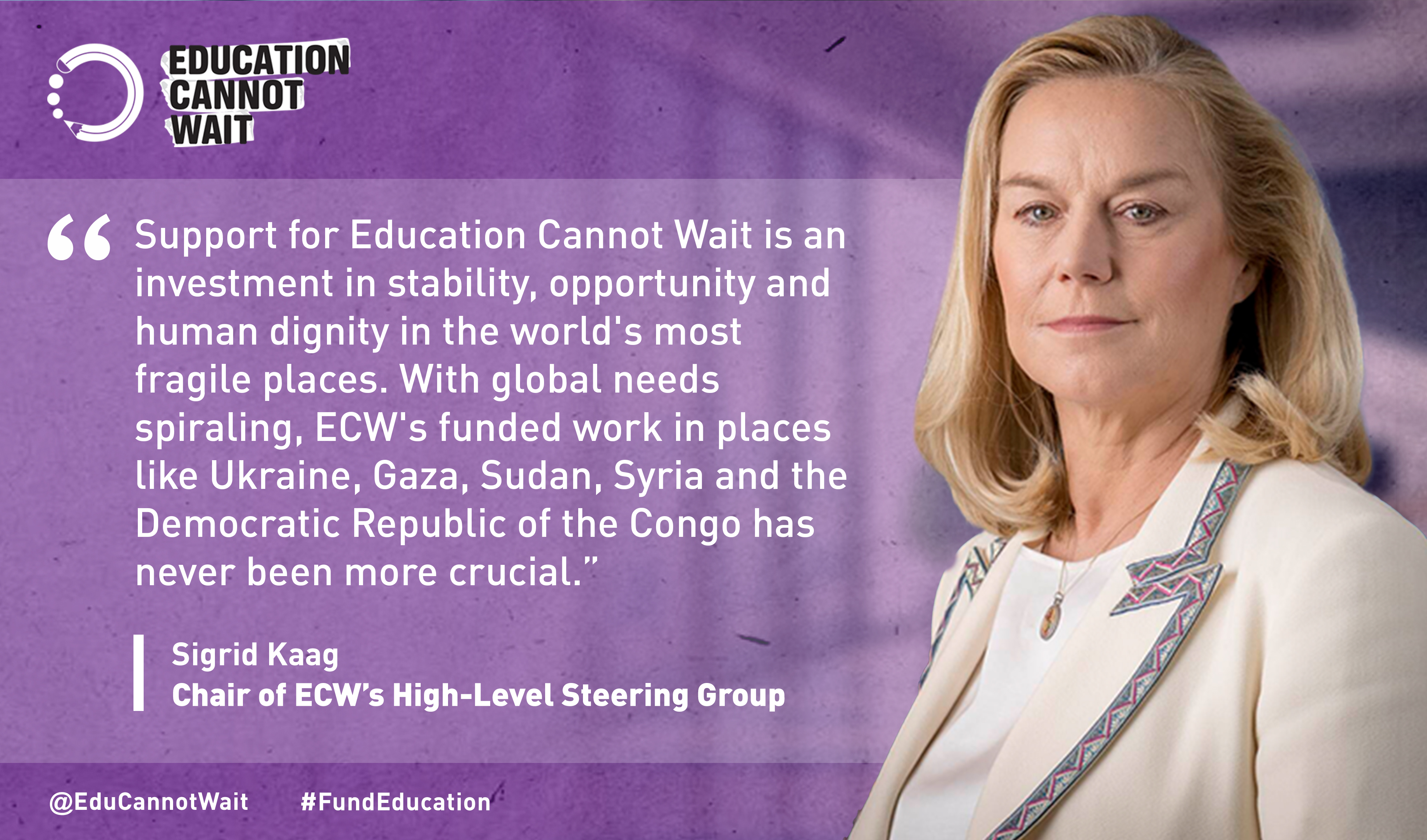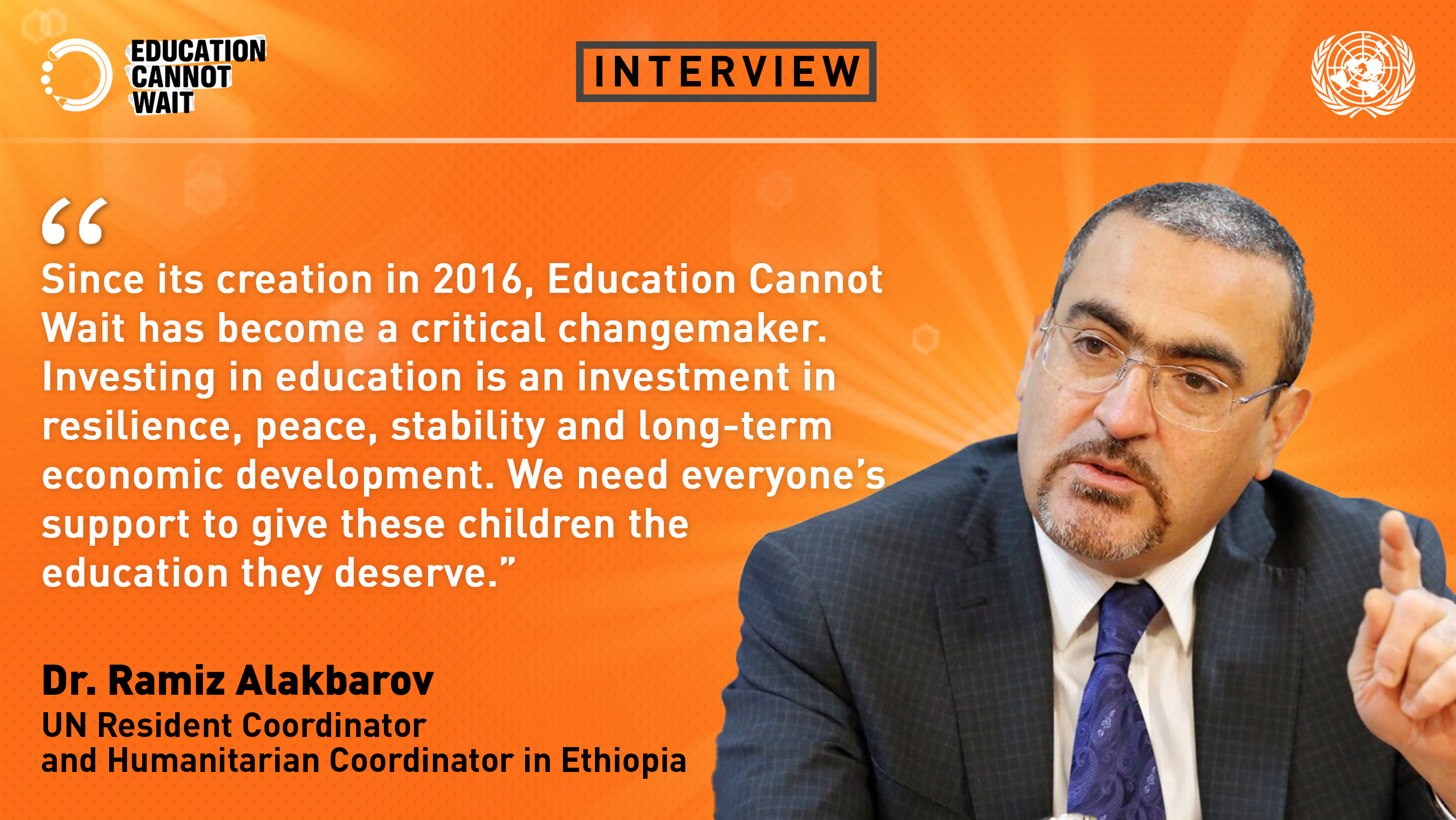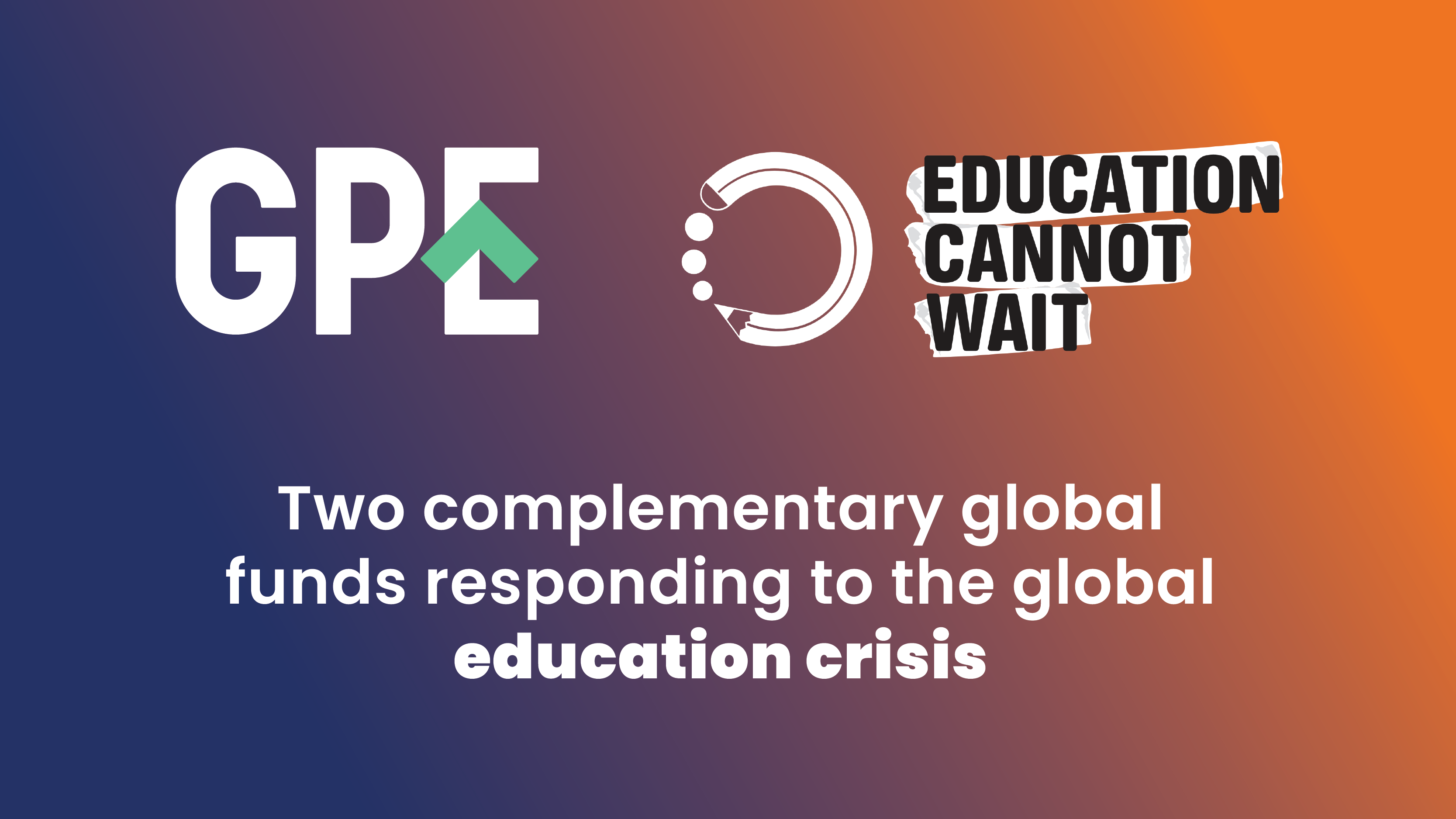Education Cannot Wait Interviews United Nations Secretary-General António Guterres

ECW: Why is education a priority in emergencies and protracted crises?
António Guterres: The COVID-19 pandemic has upended societies and created the largest-ever disruption of education systems, affecting more than 1.5 billion students. While remote solutions were rolled out, 1 in 3 children missed out on such opportunities, exposing and exacerbating inequalities and vulnerabilities, especially for those in crisis situations. In such circumstances, education protects girls and boys from sexual violence and exploitation, trafficking, early pregnancy and child marriage, forced recruitment into armed groups and child labour. It also ensures that they continue learning, offering them hope for the future. As we enter 2021, education must be at the core of pandemic response and recovery efforts. Without resolute political commitment by global leaders, as well as additional resources for Education Cannot Wait, and its UN and civil society partners, millions of girls and boys may never return to school. Investing in the education of these vulnerable children and youth is an investment in peace, prosperity and resilience for generations to come – and a priority for the United Nations.
ECW: Why is it important to facilitate more collaboration between humanitarian and development actors in crisis contexts?
António Guterres: With the intensification of conflicts, climate change-related disasters, forced displacement reaching record levels and crises lasting longer than ever, humanitarian needs keep outpacing the response despite the generosity of aid donors. Partnerships are crucial to transform the aid system, end silos and ensure that aid is more efficient and cost-effective. Whole-of-child education programmes offer a proven pathway for stakeholders to collaborate in enabling vulnerable children and youth to access quality education in safe learning environments so they can achieve their full potential.
ECW: What message would you like to share with crisis-affected girls and boys whose right to education is not yet being realized?
António Guterres: Above all, I pay tribute to their resilience and I commit to working with governments, civil society and all partners to overcome both the pandemic and the crises that have been such profound setbacks in their lives. We must also step up our efforts to reimagine education – training teachers, bridging the digital divide and rethinking curricula to equip learners with the skills and knowledge to flourish in our rapidly changing world.
ECW: As a secondary student in Portugal, you won the ‘Prémio Nacional dos Liceus’ as the best student in the country. After completing your university studies in engineering, you started a career as a teacher. Can you tell us what education personally means to you?
António Guterres: Long before I served at the United Nations or held public office, I was a teacher. In the slums of Lisbon, I saw that education is an engine for poverty eradication and a force for peace. Today, education is at the heart of the Sustainable Development Goals. We need education to reduce inequalities, achieve gender equality, protect our planet, fight hate speech and nurture global citizenship. Upholding our pledge to leave no one behind starts with education.
ECW: Following the turbulence of 2020, what is your message to the world as we enter 2021?
António Guterres: 2020 brought us tragedy and peril. 2021 must be the year to change gear and put the world on track. The pandemic has brought us to a pivotal moment. We can move from an annus horribilis to make 2021 an “annus possibilitatis” – a year of possibility and hope. We must make it happen — together.
Background on UN Secretary-General António Guterres
António Guterres, the ninth Secretary-General of the United Nations, took office on 1st January 2017.
Having witnessed the suffering of the most vulnerable people on earth, in refugee camps and in war zones, the Secretary-General is determined to make human dignity the core of his work, and to serve as a peace broker, a bridge-builder and a promoter of reform and innovation.
Prior to his appointment as Secretary-General, Mr. Guterres served as United Nations High Commissioner for Refugees from June 2005 to December 2015, heading one of the world’s foremost humanitarian organizations during some of the most serious displacement crises in decades. The conflicts in Syria and Iraq, and the crises in South Sudan, the Central African Republic and Yemen, led to a huge rise in UNHCR’s activities as the number of people displaced by conflict and persecution rose from 38 million in 2005 to over 60 million in 2015.
Before joining UNHCR, Mr. Guterres spent more than 20 years in government and public service. He served as prime minister of Portugal from 1995 to 2002, during which time he was heavily involved in the international effort to resolve the crisis in East Timor.
As president of the European Council in early 2000, he led the adoption of the Lisbon Agenda for growth and jobs, and co-chaired the first European Union-Africa summit. He was a member of the Portuguese Council of State from 1991 to 2002. Learn more about Mr. Guterres.



